Our last article focused on the dangers of using toxic products in the home when your pets are present. If you missed it, read here: https://bolostail.com/beware-of-chemicals-with-pets-in-your-home/. Therefore, let’s focus on non-toxic ways to keep your pets safe from harm, while keeping your home clean for you and your four(or 3) legged friends.
The majority of commercial cleaning products used indoors pollute the air inside your home with toxic fumes that can be very hazardous, not to mention irritating, to your pets. If you currently own any of the following chemicals, AVOID using them for cleaning your home:
- Ammonia
- Bleach
- Isopropyl alcohol
- Formaldehyde (found in general household cleaners)
- Perchloroethylene (found in carpet and rug cleaners)
- Phenols (typically found in cleaners with “sol” in the name)
- Phthalates (used with scented products, like air fresheners)
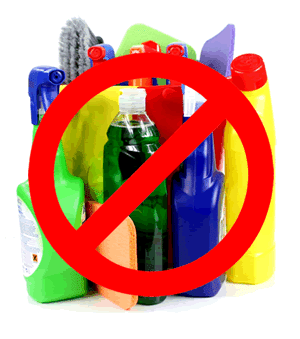
Natural Alternatives
All Purpose Vinegar and Water Floor Cleaner: If you have wood floors, ceramic tiles, linoleum or vinyl flooring use a vinegar and water solution instead of a chemical floor cleaner. Simply combine 1 cup and 1 liter of water to mop your floors. There is no need to rinse but if you want to brighten and add a shine to the surface of your floor, after it dries mop it again with club soda. This inexpensive and easy-to-make solution cuts through grease and grime on most surfaces. It also can be used to clean your dog’s plastic or rubber toys, grooming tools, and other non-porous surfaces that may need a little freshening up. The vinegar-water mix can be stored between uses.
Odor Absorber and Dog Deodorizer: Baking soda is an easy and all-natural deodorizer that can be used in the home and on your pet. To freshen up rugs or carpets, lightly sprinkle them with baking soda, let it settle in for 15 to 30 minutes, then shake out or vacuum. To freshen up your Furchild take a handful or two (depending on your dog’s size) of baking soda and rub it into your dog’s coat.
Baking Soda Scrub: Mix Baking Soda with equal amounts of warm water and salt, creating a thick paste. Use a sponge or rag and scrub the inside and outside of the dish or bowl, or other surfaces using a circular motion. Rinse well with warm water.
Kitchen and Bathroom Grease and Grime Cleaner: For general cleaning, you can sprinkle baking soda and wipe with a moist cloth or sponge. If it’s oily or just filthy, add salt and repeat the process. If you want to disinfect a surface, mix 2 cups of water with 3 tablespoons of all – natural liquid soap and approximately 25 drops of tea tree oil which has natural antibacterial and anti-fungal properties.
Cleaner for Urine, Vomit or Poop: This mixture is particularly beneficial for use in treating urine stains because it helps to break down uric crystals. When combined with baking soda, hydrogen peroxide can be used to create a powerful and all-natural deodorizing carpet cleaner. Start by blotting the stain with paper towels, then sprinkle a good amount of baking soda over it. Next, combine half a cup of 3% hydrogen peroxide with 1 teaspoon all – natural dishwashing liquid and slowly pour the solution over the stain and baking soda. Using a clean cloth or scrub brush, scrub at the stain then let it sit for 10 minutes before vacuuming the area thoroughly. Let dry thoroughly before placing back on the floor for your pet.
Safe Cleaning Tips!
- If you do use a floor cleaner with chemicals mop or rinse well with warm water.
- When cleaning floors, try to prevent pets from walking across them until they are dry. Pets groom their paws and fur with their tongues and you don’t want them to ingest anything harmful.
- Do NOT use bleach when a pet soils your carpet or floors. The ammonia in the urine will react with bleach and give off harmful fumes.
- Avoid using any ammonia-based products, as the ammonia smell may encourage your pet to ‘mark’ the area.
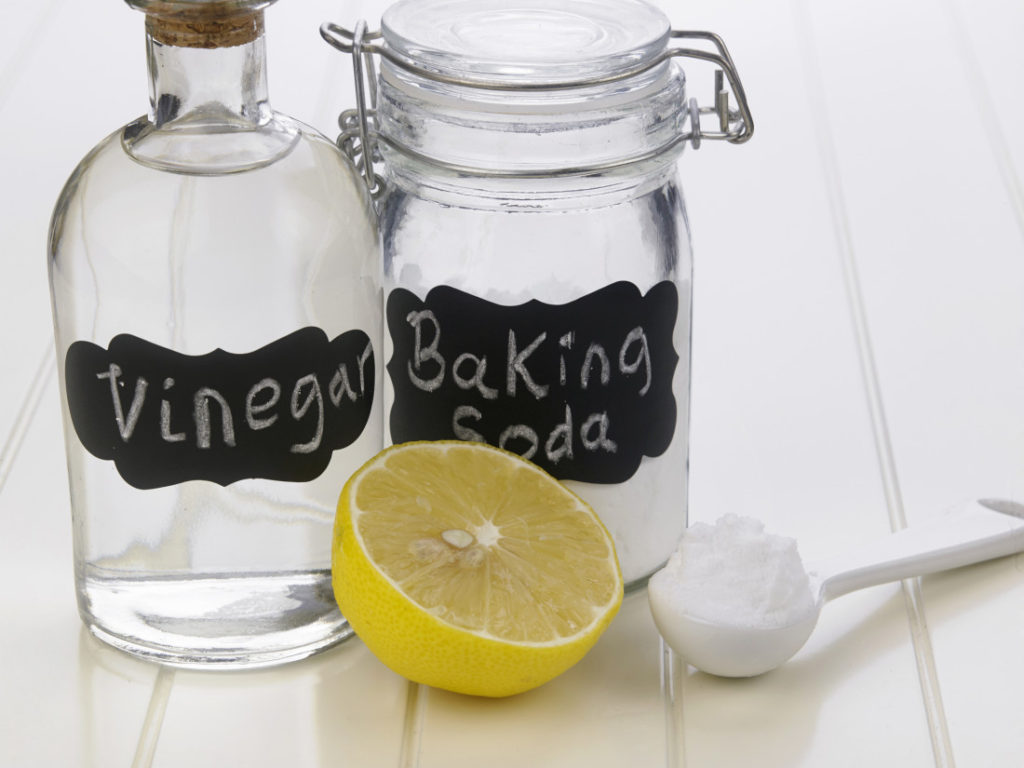
There are several areas to be aware of in order to create a safe home environment for your pets, they include flooring, bedding, food and water bowls and toys.
Flooring
When you think about it, your pets spend most of their time on or near flooring, so this means they are at risk of ingesting toxins when they eat food off the floor. It’s particularly important to make sure you’re not using commercial cleaners consisting of harsh chemicals that could be detrimental to your pet’s health, be it short or long term. Our dogs and cats can absorb chemicals through the soft skin on their paws and noses. Their relatively small size makes them more vulnerable to chemical poisoning than humans, increasing the chances of toxic build-up in their organs. Some of the ingredients they contain, including bleach, ammonia and phenols are toxic to animals, leading to nausea, headaches, vomiting and may cause damage to their sensitive olfactory receptors
(http://www.balancebehaviour.org/blah-1/). With their heightened sense of smell, animals are especially sensitive to citrus and pine fragrances in cleaning products such as floor cleaners. Chose products that are pet friendly, or easily-available pantry ingredients that do the task of cleaning, deodorizing and take care of stain removal.
Bedding
Expose dog beds to sunlight regularly to kill bacteria. It is important to air out your pet’s bed regularly as the sun. Wash the bedding at least once a month with a mild, pet-safe detergent. Unlike regular cleaners that leave a residue in the fibers, pet-friendly detergents are free of bleach and strong synthetic fragrances. To get rid of any odor, add a baking soda to the wash. Do not use bleach, fabric softeners or other scented products that could irritate your pet’s fur, eyes and nose. Make sure to let the bedding dry entirely in the sun to reduce any chances of bacterial and fungal growth.
Food & Water Bowls
Food bowls are hosts for bacteria and fungus, and if not cleaned regularly, they can make your pet sick. Whereas, regular dish soap leaves behind a residue that pets ingest, it is important to dilute your natural dish soap to minimize the chances of residue. If you want to eliminate residue, make a paste with equal parts baking soda, salt and warm water and apply this simple mixture to ceramic, stainless or plastic food bowls before scrubbing and rinsing well with hot water, as an additional precaution. To more easily clean the sticky mess at the bottom of food bowls, create a non-stick layer by applying a bit of coconut or olive oil at the bottom of the bowl. It will prevent food from sticking and help give your pet the benefit of a shiny, healthy coat.
Toys
Our pets obviously play with their toys using their mouths and feet, making the toys carriers of saliva, bacteria and general filth. Pet toys must be cleaned regularly to reduce the build-up of bacteria and dirt and help minimize the risk of transferring them throughout the house. Once again, avoid commercial detergents and soap while cleaning pet toys. Instead use a non-toxic cleanse of equal parts warm water and vinegar in a tub or machine. A brush, or toothbrush, can be used to scrub out any tough stains and give them an added deep clean. Rinse and dry them in sunlight to rid them of odor and bacteria.
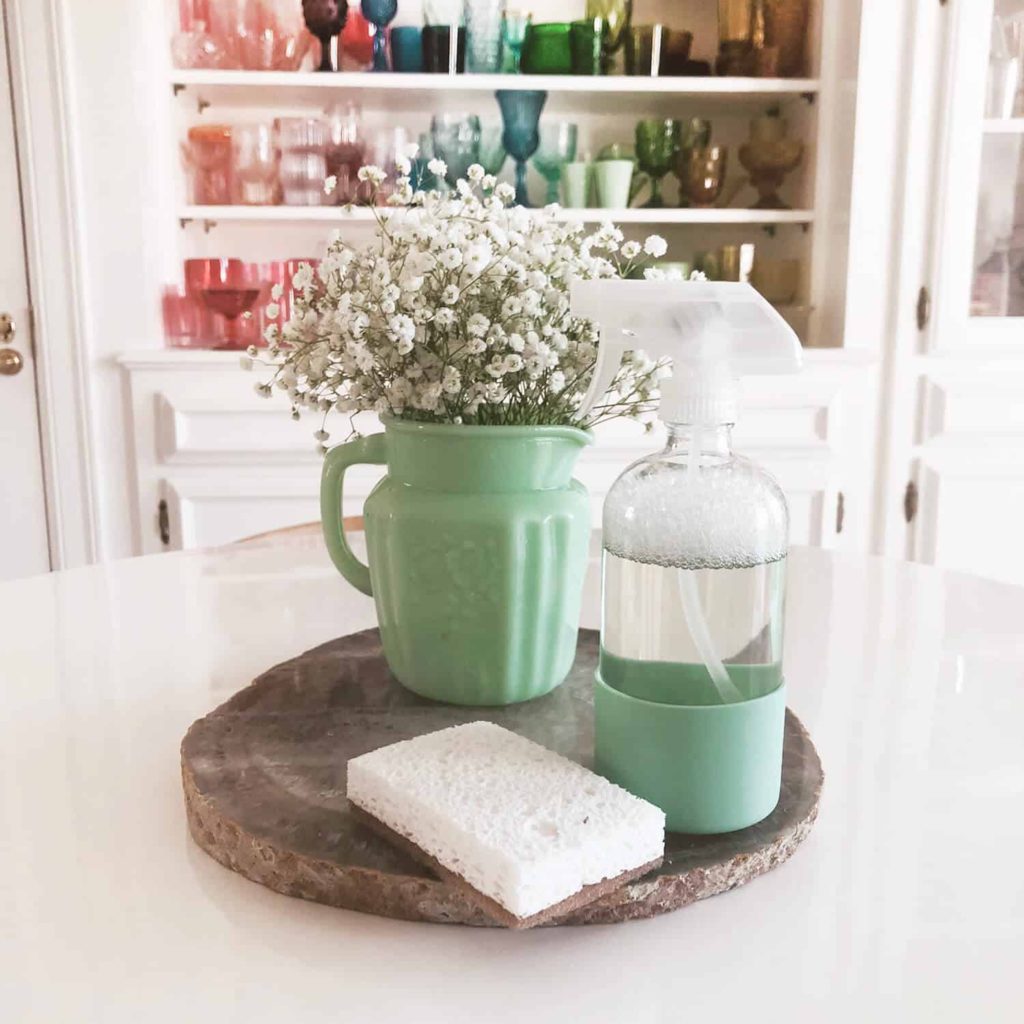
On a final note, remember to keep your pets indoors if you’re having any chemicals sprayed outdoors, and allow plenty of time to dry before letting pets back out into the yard. Do your research in what is being used with pets inside and outside your home. Make the switch to natural alternatives to help your beloved pets live healthier and longer lives!
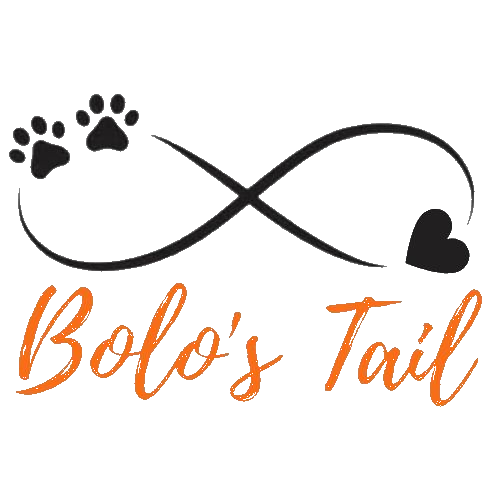
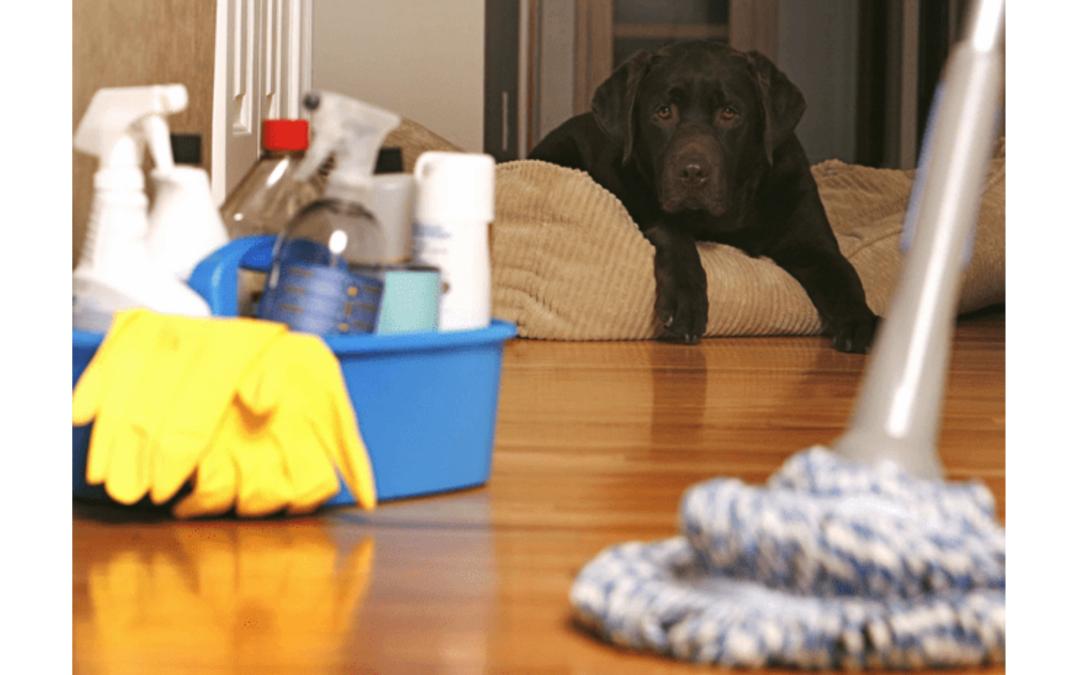
Amazing blog post thanks Kelly. I will pass it onto my family in NZ with their dogs…
Thank you so much Josie, glad you find it useful!